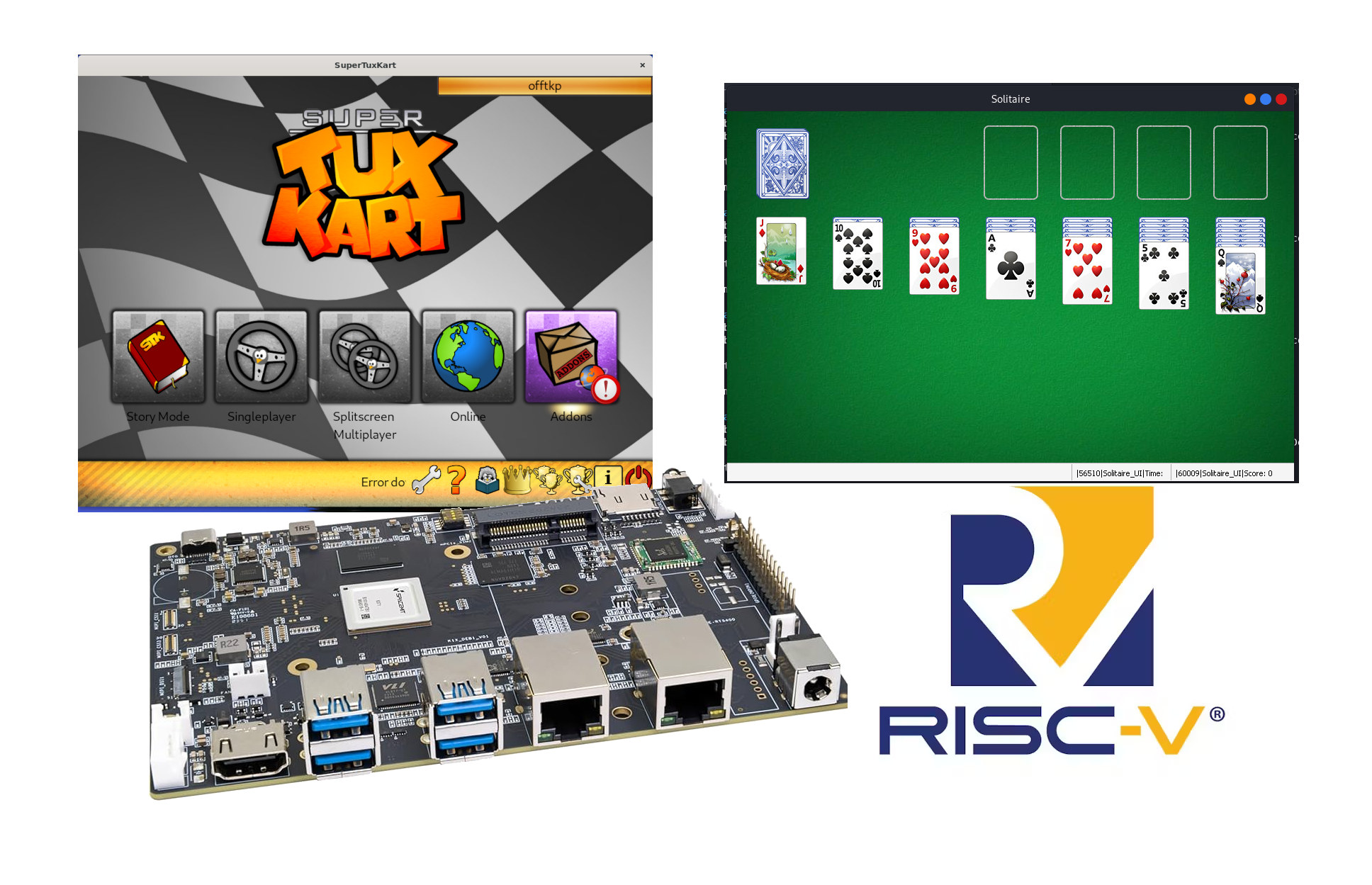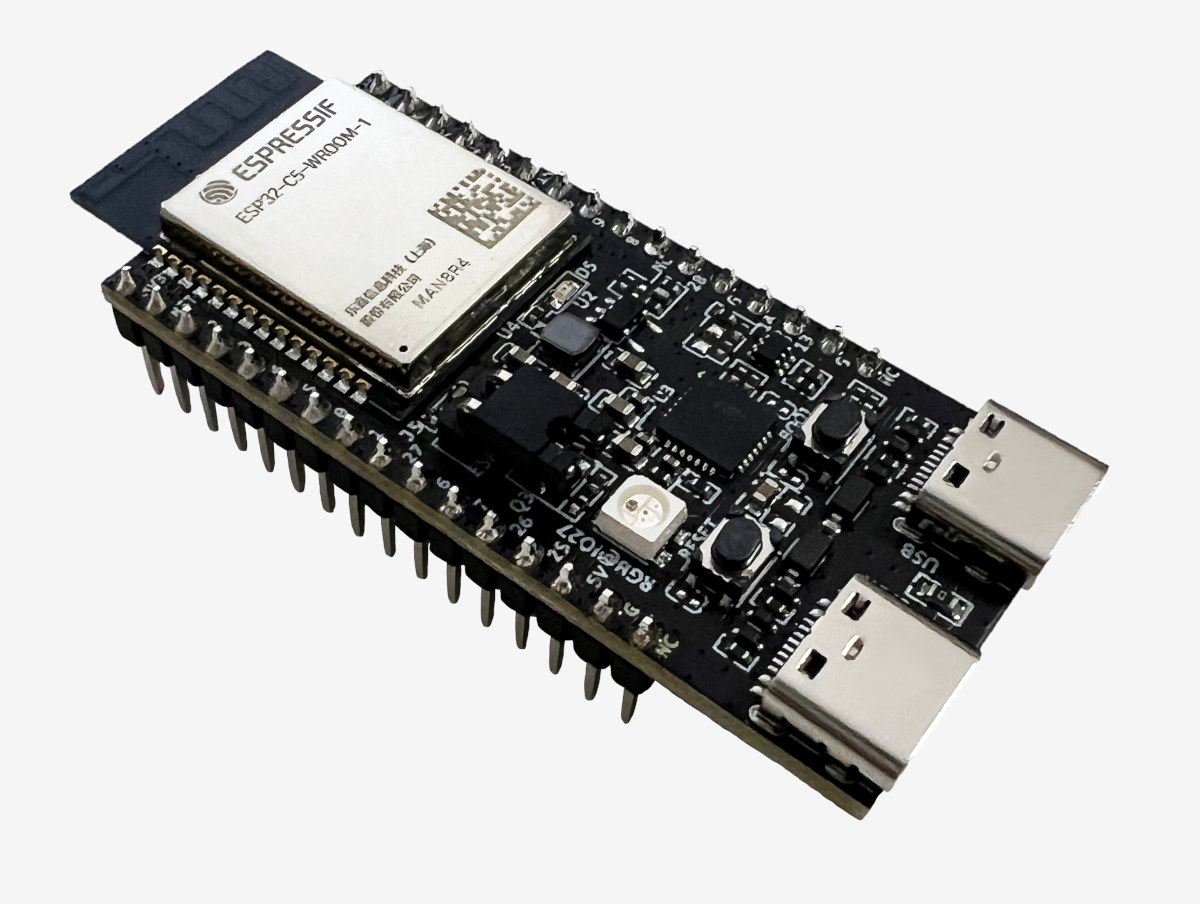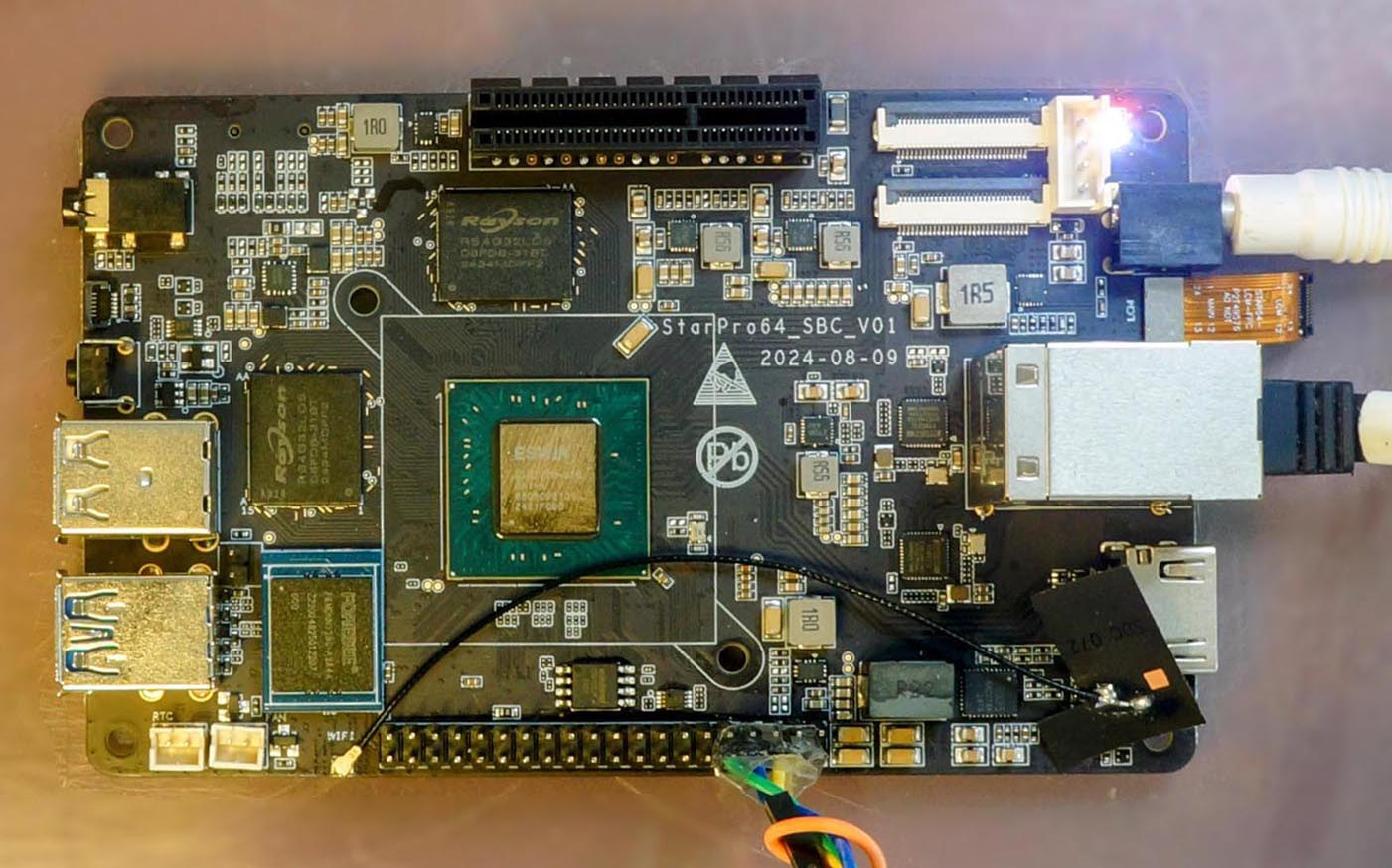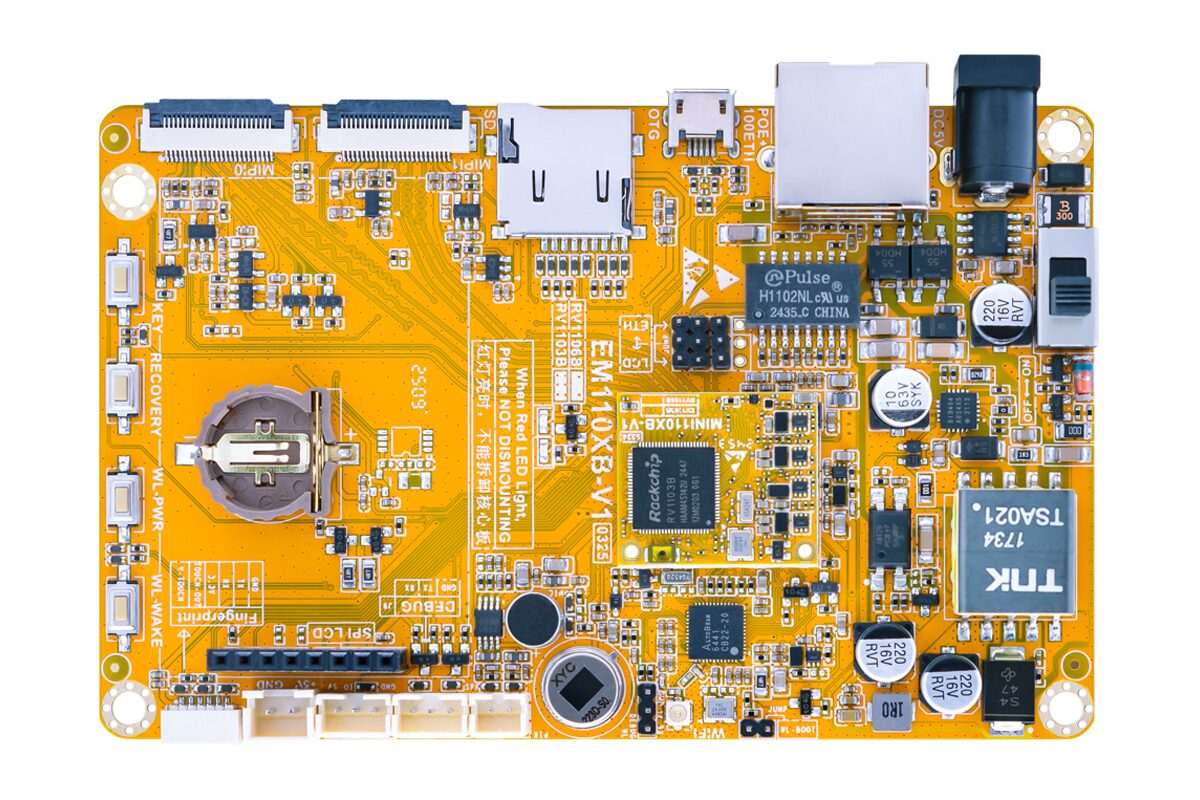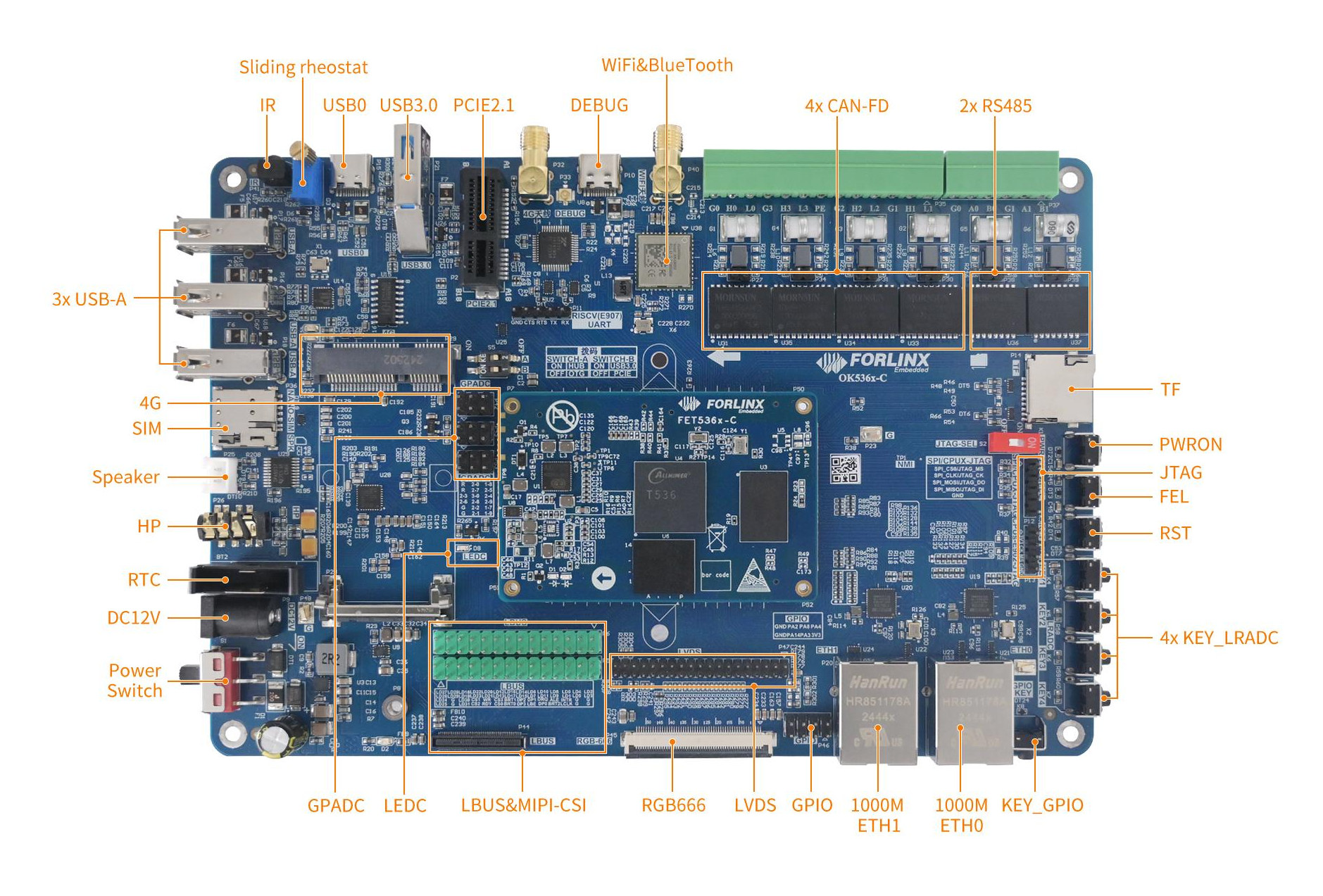Some programs and most games are designed for x86 hardware, and we’ve already seen projects like box86 x86 emulator for 32-bit Arm targets and Box64 x86-64 emulator for 64-bit Arm hardware to run games on Arm hardware. The Felix86 x86-64 emulator is similar to Box64, except it targets specifically RISC-V hardware. The project is very new, but it can already run some Linux games like World of Goo 2, SuperTuxKart, and Quake OpenArena, while the Wine emulator can currently handle simple Windows games like Solitaire. You’ll find the full compatibility list on the project’s website. Felix86 features: Just-in-Time (JIT) recompiler Uses the RISC-V Vector Extension for SSE instructions Utilizes the B extension, if available, for bit manipulation instructions like bsr Supports a variety of optional extensions, such as XThead custom extensions You’ll find the source code on GitHub. Testing has mostly been done on a Banana Pi BPI-F3 SBC powered […]
ESP32-C5 dual-band WiFi 6 SoC enters mass production, ESP32-C5-DevKitC-1 board launched for $15
Espressif Systems has just started mass production of the ESP32-C5 RISC-V wireless microcontroller with dual-band (2.4/5 GHz) WiFi 6, Bluetooth LE, and 802.15.4 (Zigbee, Thread) connectivity. The ESP32-C5-DevKitC-1 development is now available for about $15 on AliExpress, and should soon show up on the company’s Amazon store. So far, WiFi-capable Espressif microcontrollers have only supported 2.4 GHz WiFi since it’s cheaper and offers better range for IoT applications, but some applications may benefit from 5 GHz WiFi, so the company unveiled the ESP32-C5 dual-band WiFi 6 and BLE RISC-V MCU in June 2022. Design probably took longer than expected, but we noted documentation for an ESP32-C5 beta board in March 2024, and finally, the company has just announced that mass production has started. We’ll have a closer look at the ESP32-C5-DevKitC-1 board in this article, since it is different from the beta board. ESP32-C5-DevKitC-1 specifications: Wireless module – ESP32-C5-WROOM-1 SoC […]
Muse Pi Pro is a feature-packed, credit card-sized SpacemIT M1 RISC-V SBC with HDMI, GbE, 4x USB, M.2 and mPCIe sockets
Muse Pi Pro is a feature-packed, credit card-sized SBC powered by the SpacemIT M1 octa-core 64-bit RISC-V AI SoC with a 2 TOPS NPU and equipped with up to 16GB LPDDR4x and 128GB eMMC flash. The single board computer features gigabit Ethernet and a WiFi 6 + Bluetooth 5.3 module for connectivity, HDMI and MIPI DSI display interfaces, two MIPI CSI interfaces, a 3.5mm audio jack, four USB 3.0 ports, an M.2 socket for an NVMe SSD or wireless module, a mini PCIE socket for WiFi and 4G LTE/5G cellular connector, and a 40-pin GPIO header for expansion. That’s quite a lot of features for such a compact board. Muse Pi Pro specifications: SoC – SpacemiT M1 (similar to SpacemIT K1, but clocked at 1.8 GHz) CPU – 8-core X60 RISC-V processor @ 1.8 GHz GPU – Imagination IMG BXE-2-32 with support for OpenGL ES3.2, Vulkan 1.2, OpenCL 3.0; 20 […]
Pine64 StarPro64 is a RISC-V SBC with ESWin EIC7700X AI SoC, 32 GB LPDDR5
Pine64 StarPro64 is a single board computer (SBC) powered by an ESWin EIC7700X quad-core 64-bit RISC-V SoC with a 19.95 TOPS AI accelerator and equipped with up to 32GB LPDDR5 RAM. It has a similar design to the Star64 SBC powered by a StarFive JH7110 RISC-V SoC, and features HDMI video output, MIPI DSI and CSI display/camera interfaces, two gigabit Ethernet ports, four USB ports, a 40-pin GPIO header, and a PCIe Gen3 x4 slot. The OS can boot from a microSD card or an eMMC flash module. StarPro64 specifications: SoC – ESWIN EIC7700X CPU 4x SiFive Performance P550 RV64GC RISC-V cores @ up to 1.4GHz or 1.8GHz with Cortex-A75-class performance 32KB(I) + 32KB(D) L1 Cache 256KB L2 Cache 4MB shared L3 Cache Cache supports ECC (supports SECDED) NPU – Up to 19.95 TOPS in INT8, 9.975 TOPS in INT16, and 9.975 FTOPS in FP16 Vision Engine HAE (2D Blit, […]
Banana Pi BPI-RV2 is a low-cost RISC-V router with a 2.5GbE port and five gigabit Ethernet ports
We briefly mentioned the Banana Pi BPI-RV2 router in our article about the Siflower SF21H8898 quad-core 64-bit RISC-V SoC designed for industrial gateways, routers, and controllers. But we now have more information about Banana Pi’s latest RISC-V router, and it’s available for purchase for $34.50 on AliExpress. So let’s have a closer look. The Banana Pi BPI-RV2 ships with 512MB DDR3 RAM, 128 MB SPI NAND, and 16 MB SPI NOR flash for storage redundancy. The router features one 2.5GbE port with optional PoE support, five gigabit Ethernet ports, an M.2 2242/2230 PCIe Gen 2 x1 interface for NVMe SSD storage, and a mini PCIe socket for a WiFi module. Banana Pi BPI-RV2 specifications: SoC – Siflower SF21H8898 quad-core 64-bit RISC-V @ 1.25GHz System Memory – 512MB DDR3 Storage 128 MB SPI NAND Flash for U-Boot and Linux 16 MB SPI NOR flash for U-Boot and Linux; write protected by […]
Avaota F1 – A tiny camera board based on Allwinner V821 RISC-V SoC with built-in WiFi and 64MB DDR2
The Avaota F1 is an ultra-small, open-source hardware Linux SBC powered by an Allwinner V821 32-bit RISC-V camera SoC with 64MB on-chip DDR2 and built-in 2.4 GHz WiFi 4, and designed for camera applications with a MIPI CSI connector. The 35×22 mm board also features a 32MB NOR flash, an analog microphone, a USB-C port for power, data, and programming, two 15-pin GPIO headers, a FEL button, and a user LED. It looks like it will be offered as a development kit with a 1080p30 camera and a 3.5-inch or 1.54-inch SPI display. I also think it’s the first time I’ve seen a Linux-capable application processor with built-in WiFi. Avaota F1 specifications SoC – Allwinner V821L2-WXX CPU 32-bit RISC-V CPU @ 1.2GHz with 16KB L1 D/I cache, 128KB L2 cache 32-bit RISC-V MCU @ 600 MHz with 16KB L1 I-cache, 8KB L1 D-cache Memory – 64MB DDR2 on-chip VPU – […]
Boardcon EM1103B AIoT SBC for video surveillance applications features PIR sensor, fingerprint interface, and dual camera support
Boardcon EM1103B is an AIoT SBC powered by a Rockchip RV1103B SoC designed for surveillance applications with dual camera, fingerprint, and a PIR sensor. This unique combination makes it suitable for vision-based applications such as smart cameras, doorbells, and battery-powered surveillance devices. The SBC consists of a compact core board that mounts to a large baseboard, which gives access to all the necessary I/O modules and also provides power. The SBC together features 100 Mbps Ethernet, Wi-Fi, USB 2.0 OTG, UART, GPIO, and interfaces for speakers, microphones, fingerprint sensors, and PIR motion sensors. It also features PoE (5V) support and expandable storage via microSD. Additionally, it integrates two MIPI CSI camera interfaces mad the RV1103B’s 8MP hardware ISP with enables advanced image processing features such as HDR, 3A (AE/AF/AWB), and 3DNR. The chip also supports H.264/H.265 video encoding for local and cloud streaming. Boardcon EM1103B specifications: Core Board – Boardcon […]
Allwinner T536 quad-core Arm Cortex-A55 & RISC-V industrial SoC supports ECC RAM, up to 3 TOP AI accelerator
Allwinner T536 SoC features four Cortex-A55 cores, a 600 MHz RISC-V core, and a low-power RISC-V for power management, as well as support for ECC memory and an optional NPU with up to 3 TOPS of AI performance. The processor is designed to work in the industrial temperature range (-40 to +85°C) and offers plenty of I/Os, including two Gigabit Ethernet, a USB 3.1 DRD and PCIe Gen2 conbo, MIPI DSI, RGB, and LVDS display interfaces, paralle CSI and MIPI CSI camera interfaces, CAN FD, SPI, I2C, UART, several ADC, and more. The SoC is designed for interactive terminals, smart manufacturing, and other Edge AI industrial equipment. Allwinner T536 specifications: CPU cores Quad-core Arm Cortex-A55 @ up to 1.6GHz Single-core E907 RISC-V core @ up to 600 MHz Single-core E902 RISC-V MCU for low-power management GPU – G2D hardware accelerator with rotate, mixer, and scaler functions ISP Max resolution – […]


